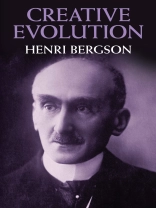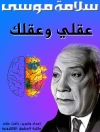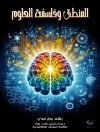The most famous and influential work of distinguished French philosopher Henri Bergson (1859–1941),
Creative Evolution features the fullest expression of the philosopher’s ideas about the problem of existence, propounding a theory of evolution completely distinct from these of earlier thinkers and scientists.
In discussing the meaning of life, Bergson considers the order of nature and the form of intelligence, including the geometrical tendency of the intellect, and examines mechanisms of thought and illusion. In addition, he presents a critique of the idea of immutability and the concept of nothingness, from Plato and Aristotle through the evolutionism of his contemporaries.
Bergson’s influence on Marcel Proust and other twentieth-century writers renders a grasp of his theories imperative to students of literature as well as philosophy. Historians of science and other readers will also appreciate the importance of this milestone in philosophical and evolutionary thought.
Innehållsförteckning
INTRODUCTION
CHAPTER I THE EVOLUTION OFLIFE-MECHANISM AND TELEOLOGY
Of duration in general
Unorganized bodies and abstract time
Organized bodies and real duration
Individuality and the process of growing old
Of transformism and the different ways of interpreting it
Radical mechanism and real duration: the relation of biology to physics and chemistry
Radical finalism and real duration: the relation of biology to philosophy
The quest of a criterion
Examination of the various theories with regard to a particular example
Darwin and insensible variation
De Vries and sudden variation
Eimer and orthogenesis
Neo Lamarckism and the hereditability of acquired characters
Result of the inquiry
The vital impetus
’CHAPTER II THE DIVERGENT DIRECTIONS OF THE EVOLUTION OF LIFE–TORPOR, INTELLIGENCE, INSTINCT’
General idea of the evolutionary process
Growth
Divergent and complementary tendencies
The meaning of progress and of adaptation
The relation of the animal to the plant
General tendency of animal life
The development of animal life
’The main directions of the evolution of life: torpor, intelligence, instinct’
The nature of the intellect
the nature of instinct
Life and consciousness
The apparent place of man in nature
CHAPTER III ON THE MEANING OF LIFE–THE ORDER OF NATURE AND THE FORM OF INTELLIGENCE
Relation of the problem of life to the problem of knowledge
The method of philosophy
Apparent vicious circle of the method proposed
Real vicious circle of the opposite method
Simultaneous genesis of matter and intelligence
Geometry inherent in matter
Geometrical tendency of the intellect
Geometry and deduction
Geometry and induction
Physical laws
Sketch of a theory of knowledge based on the analysis of the idea of Disorder
Two oposed forms of order: the problem of genera and the problem of laws
’The idea of ’disorder’ an oscillation of the intellect between the two kinds of order’
Creation and evolution
Ideal genesis of matter
The origin and function of life
The essential and the accidental in the vital process and in the evolutionary movement
Mankind
The life of the body and the life of the spirit
CHAPTER IV THE CINEMATOGRAPHICAL MECHANISM OF THOUGHT AND THE MECHANISTIC ILLUSION–A GLANCE AT THE HISTORY OF SYSTEMS–REAL BECOMING AND FALSE EVOLUTIONISM
’Sketch of a criticism of philosophical systems, based on the anaysis of the idea of Immutability and of the idea of ’Nothing’
’Relation of metaphysical problems to the idea of ’Nothing’
Real meaning of this idea
Form and Becoming
The philosophy of Forms and its conception of Becoming
Plato and Aristotle
The natural trend of the intellect
Becoming in modern science: two views of Time
’The metaphysical interpretation of modern science: Descartes, Spinoza, Leibniz’
The Criticism of Kant
The evolution of Spencer
INDEX












